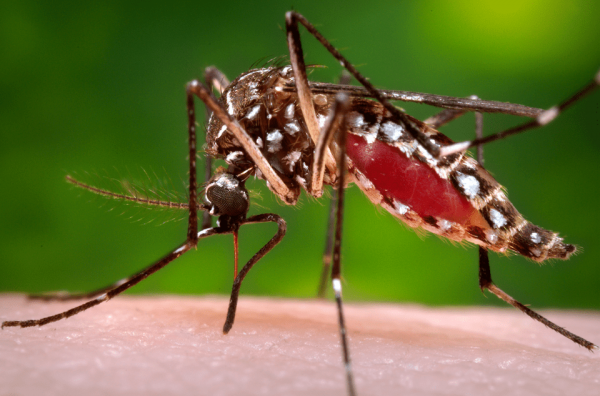
On 25 April, Nigeria joined the rest of the global community to commemorate World Malaria Day, an annual event established in 2007 by the World Health Organisation (WHO) to highlight the need for continued investment and sustained political commitment for malaria prevention and control. The theme of this year’s campaign, “Zero Malaria – Draw the Line against Malaria”, explored the progress achieved so far in the war against malaria by some countries, while emphasising the need for countries still having a high burden of the disease to attain the set goal of ending malaria by 2030.
The event particularly provided an insight into the enviable milestone achieved by 38 countries of the world, which have been certified malaria-free by WHO, including five African nations. Algeria emerged the latest with zero incidence of the disease in 2019, while Ghana, Namibia and South Africa also had the record of reducing malaria incidence and deaths by 40 per cent in 2020 compared to 2015.
Sadly, Nigeria still suffers the highest burden of malaria in the world, with approximately 61 million cases and 100,000 deaths reported annually, according to the World Malaria Report 2020. What may, perhaps, serve as a little consolation is the 2018 Nigeria Demographic and Health Survey (NDHS) which indicated that the country made some progress in reducing the prevalence of the mosquito-borne disease among under five children, with a sharp decline from 42 per cent in 2010 to 23 per cent in 2018.
Now that the WHO has further scaled up the target through its Global Strategy for Malaria 2016-2030 which aims to reduce malaria incidence and mortality by at least 90 per cent by 2030, as well as eliminating malaria in at least 35 countries, it is imperative to ask, where does Nigeria stand in all this? Or more precisely, if many other countries, including some in Africa, have attained the target of zero-malaria, why does Nigeria not only continue to lag behind but has actually remained, for many years, one of the most afflicted in the world by this preventable disease?
Curiously, many interventions have been made to put an end to the scourge of malaria in Nigeria, without the expected level of success. For example, since 2008, the Nigeria Malaria Consortium, through its UK aid-funded Support to National Malaria Programme (SuNMap), has made spirited and relentless efforts to combat the disease in the country. According to the non-profit organisation, its current programme (SuNMap 2) aims to improve the planning, financing and delivery of sustainable malaria programmes across 165 local government areas in six states, which include Jigawa, Kaduna, Kano, Katsina, Lagos, and Yobe.
It must be emphasised however that regardless of the efforts and contributions of external countries and organisations, the battle against malaria – or any other prevalent disease, for that matter – cannot be won without the decisive commitment of the Nigerian government and the populace. Indeed, the Malaria Consortium itself recently admitted this, saying: “It is essential that there is government involvement and stewardship of SuNMaP 2, including through the allocation and release of funds, to ensure that the interventions are sustainable. Malaria Consortium and its partners will, therefore, work in collaboration with government structures at the national and sub-national levels to coordinate and harmonise the planning, implementation and evaluation of programme interventions.”
This “government support and stewardship” appears to be the missing link in the malaria fight over the years, and if Nigeria hopes to make progress like other countries, then government must seriously begin to examine and address the factors perpetuating the malaria burden. To begin with, environmental factors, such as blocked drainages and poor conditions of living have been identified as some of the problems militating against attainment of zero malaria in the country. In many cities in Nigeria, bad drainage system, poor sewage disposal culture and poor sanitary conditions have created the enabling environment for mosquitoes to breed, thereby increasing the chances of infection. This worrisome reality is further complicated by government’s failure to painstakingly monitor the activities of its sanitary inspectors who are supposed to ensure that human environments meet the stipulated hygiene standards, especially in the local government areas.
Corruption in high places has also not helped matters. Most of the monies budgeted for health are not judiciously used. There have actually been reports of diversion of funds meant for healthcare delivery and malaria control into private pockets. It is worrisome to note that even donated equipment like mosquito nets and anti-malaria drugs are also diverted and monetised by corrupt government officials.
Therefore, to actualise the WHO’s Global Strategy for Malaria 2016-2030 goals in Nigeria, government has to be more pragmatic about its obligation in formulating and enforcing polices that prohibit indiscriminate dumping of refuse on waterways and drainages, revamping of the economy with focus on access to quality and affordable healthcare through effective health insurance scheme. Most importantly, the culture of probity and accountability must be enshrined in the ministry of health, to ensure that all malaria-related funds allocated locally and internationally are used judiciously.













